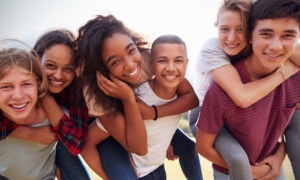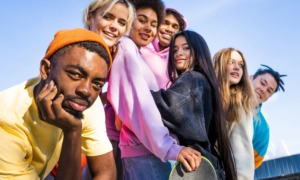 Working with youth in summer programs is a great opportunity to teach younger generations about protecting this planet we call home. Young minds are like sponges, absorbing everything around them, so it’s essential that we not only teach them sustainable habits, but model these habits by following them ourselves so that they can mirror our examples.
Working with youth in summer programs is a great opportunity to teach younger generations about protecting this planet we call home. Young minds are like sponges, absorbing everything around them, so it’s essential that we not only teach them sustainable habits, but model these habits by following them ourselves so that they can mirror our examples.
For instance, children will notice if you are using a reusable water bottle versus a plastic one, or reusable containers during lunch time versus plastic bags. If they see you recycle, they will be more inclined to recycle themselves.
Most people would agree that protecting the planet is important; however, when push comes to shove, it seems most are unwilling to make important lifestyle changes to keep the place we live healthy. Teaching young people simple habits to adopt will make a world of difference as they grow into adults and eventually share these values with their own children. Making these small adjustments in your everyday life or youth program can greatly impact earth’s plants, animals and ecosystems.
Avoid Plastic Bags
We consume way too many plastic bags. They are extremely harmful to our environment, not just by the amount of fuel and oil required in their manufacturing, but the harmful nature of where they end up. Bags that are not properly recycled infest landfills, oceans and woodlands across the globe. Resealable and reusable containers, mason jars or thermoses are better options than plastic snack baggies that get thrown out after one use. Encourage your program to serve all food in sustainable containers. You can also try to use cutlery, packaging and napkins that are made from recycled materials.
Watch The Water
Humans waste enormous amounts of water, especially in America. Cutting back on water consumption is easier that you think. Ask kids to start by measuring the length of their showers and noticing how long it usually takes them to get clean. Once they start keeping track, it will become easier for them to take shorter showers because they will be cognizant of wasting water. Remind them how much they can save by simply turning off the faucet while washing their hands and brushing their teeth. These small changes can amount to saving up to 8 gallons per use!
[Related: Service Learning in the Summer: Youth Can Widen Knowledge, Develop New Skills]
Don’t forget to consume your water with your own reusable water bottle. Plastic water bottles tend to be wasted and not always recycled, resulting in more unnecessary waste and consumption. This is an easy switch that children can implement and will end up saving their families money. Talk to your program about eliminating plastic water bottles in favor of reusable ones. If everyone made the switch from plastic to reusable, an estimated 26 million bottles could be prevented from being dumped in landfills, where they sit for around 1,000 years before decomposing.
Everyday Environmental Education
Rather than simply telling kids about pollution and other environmental problems, help them visualize the issues. Create surveys or questionnaires so they can put a number on it; for example, how many plastic bags their family uses in a week, how many pieces of trash they see along the road, how long they take in the shower each day, how many times they flush the toilet, etc. This information can be used to set conservation goals and rewards; for example, they get a reward if they pick up at least five items of garbage off the ground every day for a week or after using a reusable water bottle five times. With large groups, you can even turn it into a friendly competition; for example, whoever generates the the least amount of garbage or recycles the most in a week wins. Prizes and rewards can be things like a trip to the local zoo or science museum, or maybe an outdoor trip, like a group hike.
Small Steps Add Up
The most important message to get across is that kids can actually make a difference. Children need to be encouraged that what they do matters and has an impact outside of their own lives because everything is interconnected. It’s important to teach kids that they shouldn’t be afraid to speak up about saving our planet. Too often kids believe that what they think and say isn’t important because they are not adults. Let them have a voice and be heard.
Saving the planet isn’t something that can be done by one person, and certainly doesn’t happen overnight. By making small green-friendly changes in your life, and teaching the younger generation these habits before they become set in their ways, will make a difference. You’ll be able to inspire others with the desire to help the planet thrive, ultimately leading to the large-scale change we need.
Betsey Brewer is an executive at Southwick’s Zoo and the founder/executive director of EARTH Ltd, the Zoo’s nonprofit that focuses on promoting animal ecology, endangered species and wildlife conservation.
More related articles:
Communities Take Creative Approaches to Summer Learning
Keeping Adolescents Engaged: What Can After-School Programs Do?
Why Some After-school Advocates Love Competency-based Learning






























